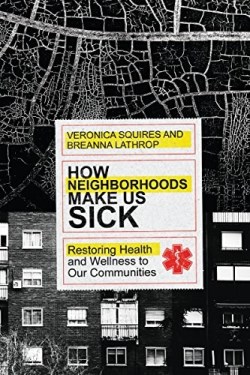Breanna Lathrop
Showing the single result
-
How Neighborhoods Make Us Sick
$24.99Foreword By Dr. Keri Norris
Part 1: How We Get Sick
1. Two Journeys To The Inner City
2. What Is Making Us Sick? An Introduction To Social Determinants Of Health
3. The Trauma Of Poverty
4. Working To Death: Employment And Social Status
5. Kool-Aid In A Baby Bottle: Food Insecurity And Nutrition
6. Barriers To Learning: Education And Child Development
7. When Housing Hurts: Environmental Factors
8. The Challenge Of Getting Well: Health Care Access In The United States
9. The Unmaking: On Moving Out And RebuildingPart 2: How We Get Well
10. A New Approach: What Will Make Our Neighbors Healthy?
11. The Good Sam Story
12. Poverty: Addressing A Distant Disease
13. Hired And Healthy
14. Growing Health From The Ground Up
15. A Healthy Start
16. A Place To Call Home
17. Re-envisioning Health Care
18. Rx For Change: An Approach To Activism
Epilogue: Toward A Better Way
Acknowledgments
Discussion QuestionsAdditional Info
Our neighborhoods are literally making us sick.Buildings with mold trigger asthma and other respiratory conditions. Geographic lack of access to food and health care increases childhood mortality. Community violence traumatizes residents. Poverty, unemployment, inadequate housing, food insecurity, racial injustice, and oppression cause physical changes in the body, resulting in disease and death.
But there is hope. Loving our neighbor includes creating social environments in which people can be healthy. While working in community redevelopment and treating uninsured families, Veronica Squires and Breanna Lathrop discovered that creating healthier neighborhoods requires a commitment to health equity. Jesus’ ministry brought healing through dismantling systems of oppression and overturning social norms that prevented people from living healthy lives. We can do the same in our communities through addressing social determinants that facilitate healing in under-resourced neighborhoods.
Everyone deserves the opportunity for good health. The decisions we make and actions we take can promote the health of our neighbors.
Add to cartin stock within 3-5 days of online purchase






